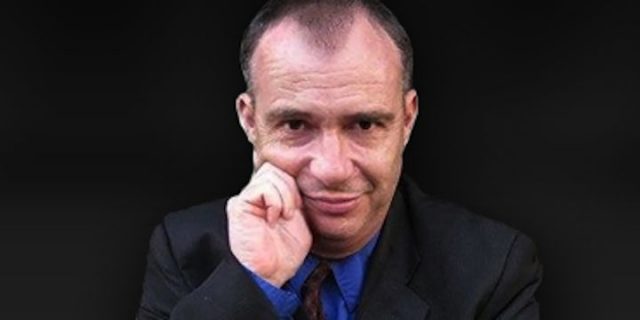R J Stove is an Australian writer, composer and musician. Both his parents were convinced atheists, and his father was a professor in the Philosophy Department at Sydney University. Yet in his forties he converted to Catholicism.
This is the (not very pretty) story of his journey.
Early years
RJ Stove grew up in Sydney, and in the village of Mulgoa on Sydney’s western fringe. He describes his upbringing as quiet and civil atheism
. In his teens he spent some time in the fairly evangelical Anglican Church, often playing the organ. But he never believed in the christian faith, and before the end of his teens he had left again.
When he was ten, an order of Catholic sisters built a religious house (convent) on the land next door. Stove’s parents were particularly opposed to Catholicism, because it seemed to them to be uncouth (they unfairly stereotyped them as large families of Irish descent with generally left wing political beliefs and little intellectual interest) and totalitarian (opposed to free thought). Yet the Sisters of Mary won these staunch atheists’ friendship, if not their beliefs, by their sheer goodness-in-action
.
Stove’s parents never seemed to connect their goodness with their faith; somehow the nuns were good despite their faith
. But their impact on Stove must have been considerable.
Stove went on to study music at the Sydney Conservatorium High School, and European History at Sydney University. He has written books on music and history, composed music and edited and contributed to many magazines.
Tragedy
A decade after his graduation, both his parents were struck down. First his father, an alcoholic and chronic smoker, was diagnosed with esophageal cancer. The same year his mother, also a heavy smoker and drinker, suffered a massive stroke, from which she never fully recovered. She was not expected to live, but she survived but was unable to speak and could hardly move. She spent the rest of her life, eight years, under round-the-clock nursing care.
His father became convinced that her stroke was caused by the shock of his cancer diagnosis, and he simply unravelled
. He found his atheism had not prepared him for these pressures, and he became erratic, violent, confused and despairing. He was hospitalised, and near the end of his stay, his son found him reading a Bible. He explained: I’ll try anything now
.
He was finally discharged from hospital, and 24 hours later he committed suicide. His wife survived him by seven years.
Stove’s turmoil
Not surprisingly, Stove was deeply affected by these events. His atheism was blown away and he was left only with guilt and questions. He was also suffering frequent bouts of mental illness. Perhaps because of the influence of the Sisters of Mary, he began to consider Catholicism.
He could accept the broad teachings of the church as plausible, but personal doubts kept him from converting for eight years. Perhaps religion would worsen his mental illness. Certainly the behaviour of some Catholics he regarded as hypocritical made him wary. So he read and read – the biographies of saints, catechetical texts, famous Catholic authors. Eventually he read a book with the stories of converts, and was impressed by what he saw as the logic of the faith. He came to agree with the words of novelist Evelyn Waugh:
the [Catholic] faith is absolutely satisfactory to the mind, enlisting all knowledge and all reason in its cause…it is completely compelling to any who give it an ‘indifferent and quiet audience’
Conversion
Finally, eight years after his father’s death, and the year after his mother died, RJ Stove was baptised into the Catholic church, and remains an active Catholic to this day.
Afterword
I found this to be a compelling story, though quite difficult to read and write about. It is not pretty. Yet I feel it can teach us something.
It does not demonstrate that atheism is false nor Catholicism true. But it does portray some of the practical challenges facing the committed atheist, and perhaps helps non-atheists understand some of the reasons why modern atheism has taken on some of the trappings of a religion – a greater sense of corporate solidarity, the appearance of an almost priestly class of heroes and giants of the ‘faith’, and the development of shared dogma and arguments. It seems to me that these are born of human impusles we all share.
Photo: Why I’m Catholic.
Feedback on this page
Comment on this topic or leave a note on the Guest book to let me know you’ve visited.
Read more about RJ Stove:
- His own account on Why I’m a Catholic website.
- Wikipedia on RJ Stove and David Stove (his father).




